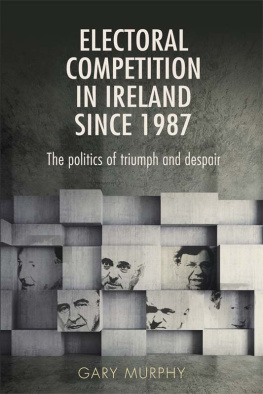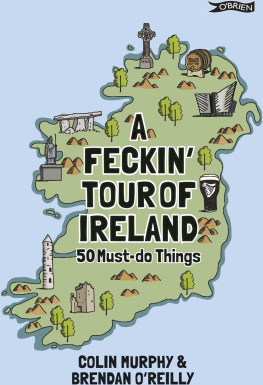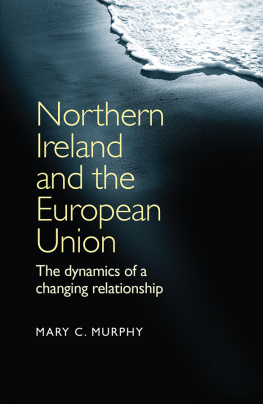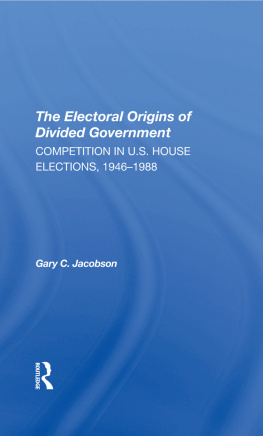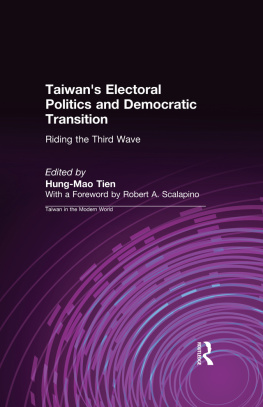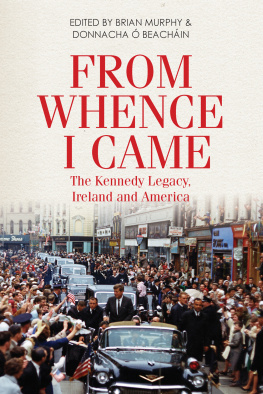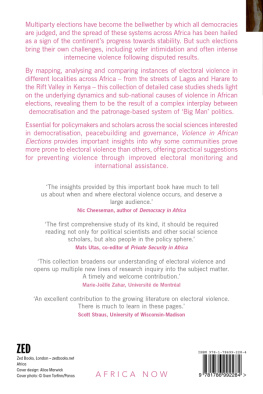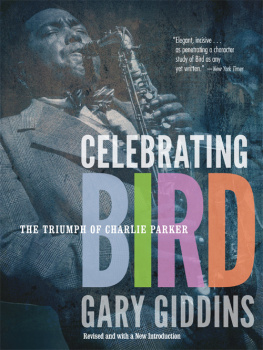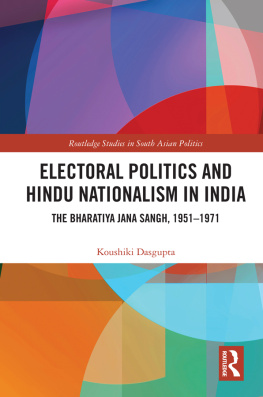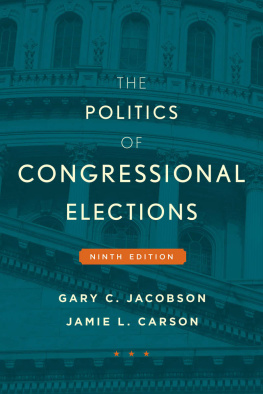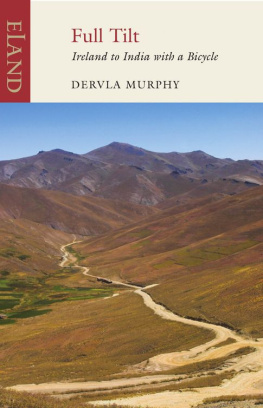Copyright Gary Murphy 2016
The right of Gary Murphy to be identified as the author of this work has been asserted by him in accordance with the Copyright, Designs and Patents Act 1988.
Published by Manchester University Press
Altrincham Street, Manchester M1 7JA
www.manchesteruniversitypress.co.uk
British Library Cataloguing-in-Publication Data
A catalogue record for this book is available from the British Library
Library of Congress Cataloging-in-Publication Data applied for
ISBN 978 0 7190 9765 2 hardback
ISBN 978 0 7190 9766 9 paperback
First published 2016
The publisher has no responsibility for the persistence or accuracy of URLs for any external or third-party internet websites referred to in this book, and does not guarantee that any content on such websites is, or will remain, accurate or appropriate.
Typeset
by Toppan Best-set Premedia Limited
Acknowledgements
I have been thinking and researching about the politics of modern Ireland for many years and have accumulated significant intellectual and personal debts. I have spent my working academic life at Dublin City University where my interest in Irish politics has been supported and encouraged by many colleagues and friends over the years. I thank Eileen Connolly, John Costello, Brenda Daly, Yvonne Daly, Michael Doherty, John Doyle, Robert Elgie, Barbara Flood, Billy Kelly, Eugene Kennedy, Christine Loscher, Adam McAuley, Iain McMenamin, Brian MacCraith, Declan Raftery and Ferdinand von Prondzynski for making DCU such a stimulating place in which to work. I have had the privilege of being the Head of the School of Law and Government at DCU since 2012 and have gained enormously from the support, counsel, and encouragement of my colleagues in the School and of our students. For that I thank them all.
For conversations, insights and advice about the nature of modern Irish politics which have informed this book I thank Nicholas Allen, Alex Baturo, Fiona Buckley, Elaine Byrne, Sarah Carey, Raj Chari, Mick Clifford, John Coakley, Shane Coleman, Matt Cooper, Larry Donnelly, Sen Donnelly, David Farrell, Odran Flynn, Michael Gallagher, Yvonne Galligan, John Garry, Eoghan Harris, John Hogan, Peadar Kirby, Joe Lee, the late Peter Mair, Michael Marsh, Shane Martin, Andrew McCarthy, Conor McGrath, Sen McGraw, Tim Meagher, Ciara Meehan, Elizabeth Meehan, Brian Murphy, Mary Murphy, Donnacha Beachin, John O'Brennan, Mark O'Brien, Deiric Broin, Philip O'Connor, Michelle O'Donnell Keating, Niamh Puirsil, Theresa Reidy, Rob Savage, Jane Suiter, Damian Thomas, Ben Tonra, Liam Weeks, and Noel Whelan.
I particularly want to thank my DCU colleagues, Eoin O'Malley and Kevin Rafter for stimulating conversations on modern Irish politics, research advice, assistance and friendship. Kevin in particularly made me sharpen my argument in response to his many queries and ultimately told me to finish this book, for which I am most grateful. My good friends and long-standing mentors Brian Girvin, John Horgan and Eunan O'Halpin have also helped me in more ways than they can imagine over the years and I take this opportunity to thank them once again for support, guidance and encouragement.
I started to think seriously about this book and the arguments presented in it during a sabbatical as a Fulbright scholar at the Center for European Studies at the University of North Carolina at Chapel Hill in 201112. I thank Frank Baumgartner, Phil Daquila, Erica Edwards and John Stephens of UNC for hosting me so generously. In Chapel Hill I benefited greatly from the friendship of Mary Beth Oliver, John Christman, Sri Kalyanaraman and Jock Lauterer and thank them for it. I also thank Cathy Frost, Breda Griffith, Dave Hannigan, Niamh Hardiman, Bill Kissane, Donal McGettigan, Mary Ann O'Neil and Tim O'Neil for their friendship, guidance and support during that sabbatical. Many thanks also to Colleen Dube and Sonya McGuinness at Fulbright Ireland for their support and help and to the Fulbright Commission for awarding me a fellowship to UNC.
I thank Tony Mason and his team at Manchester University Press, particularly Dee Devine, for their professionalism, support, and, in Tony's case, considerable patience. I am also grateful to the anonymous referees who first assessed the proposal for this book and made many helpful suggestions and to the anonymous reader of the full text. I thank DCU's Faculty of Humanities and Social Sciences Research Support Scheme for supporting this work.
Away from my desk my friends Michael O'Brien, Colm O'Callaghan, Michael Moynihan, Aengus Nolan, Joe O'Hara and Colm O'Reilly continue to remain pillars of support. This book has its beginning in 1987, the year I first entered university life as an undergraduate history student in University College Cork. Although I lived and was brought up exactly five minutes' walk from UCC it was in many ways a different world. I began my academic journey then and am still on it. From that time I thank Ashley Kenny, Niamh Counihan, Fiona Crowley, Seamus Cullinan, Brian Cunningham, Neil Hackett, Judith Kelleher, Tom Lawton and Esther Moriarty for helping me begin the journey.
Finally I cannot repay my debts to them but would like to pay particular thanks to my wife Mandy and children Amy, Aoife and Jack for living with this project as much as I have, wondering would it ever be finished, putting up with the delays and absences, and for persevering with me. I dedicate this book to my late father, Jack Murphy (19392012), who often shook his head at the nature of the politics of modern Ireland. I hope this book goes some way to explaining it.
Gary Murphy
Dublin
September 2015
Introduction:
The conservative revolutionaries
If we want things to stay as they are things will have to change.
Giuseppe de Lampedusa, The Leopard,
In February 2011 Fine Gael and Labour, although running as separate parties, were swept to power on a wave of anti-Fianna Fil resentment by an electorate deeply unhappy with austerity. Twenty-four years earlier in 1987 the same two parties had been unceremoniously dumped out of office by the electorate after presiding over a deep and lasting recession in which division and dissension were at the heart of the coalition government. After a quarter of a century in which the Irish state fluctuated from the brink of bankruptcy in 1987 through to the vulgar heights of the Celtic Tiger in the early to mid-2000s, to the spectacular collapse of the banks in 20089 one constant remained: politically the Irish electorate would look to traditional solutions when it came to the ballot box. The Irish voter, while occasionally happy to flirt with minor parties and independents, ultimately rejected newcomers, forcing them either to disband or to join with one of the larger parties.
The ultimate test of this was the 2011 general election when a Fianna Fil party which had dominated modern Ireland would face a vengeful and angry electorate, who felt somehow conned that the party which had given them the prosperity of the Celtic Tiger went on to present them with the catastrophic results of its dramatic end. And what an end it was. Exemplified both economically and politically by the accepting of access to an 85 billion rescue package for the Irish state from the so-called Troika of the International Monetary Fund, the European Union and the European Central Bank in November 2010, the decision to seek and take access to an emergency fund was the culmination of a catastrophic collapse in the economy which saw the very survival of the Irish state at risk. The political aftershock of the fall of the Celtic Tiger and the threat to the sovereignty of the state would be the collapse of the Fianna FilGreen government in almost farcical circumstances in January 2011. The resultant general election would be the most dramatic in Ireland since Fianna Fil first came to power in 1932. At its heart the election was about two potential results: how bad would the damage be for Fianna Fil, and could Fine Gael form a majority government of its own or would it have to form a coalition with the Labour Party? There were no other possible alternative governments. That in itself tells us something extraordinarily significant about Irish politics and the state of the Irish party system; at a time where practically no family in the land was unaffected by the dramatic collapse of the Irish economy the only political solution to the crisis was to go back to the two parties who had failed in the 1980s.


